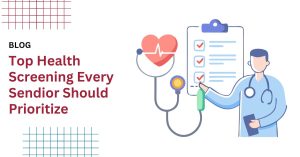
Top Health Screenings Every Senior Should Prioritize
As we age, maintaining good health requires a proactive approach. Even if you’ve enjoyed excellent health in the past, new challenges can arise over time.

As we age, maintaining good health requires a proactive approach. Even if you’ve enjoyed excellent health in the past, new challenges can arise over time.

If you’re a senior citizen who wants to improve your quality of life and avoid health problems, you can start by lowering your risk of

Are you seeking expert care for your health concerns but are unsure where to turn? Primary care physicians and specialists are both vital in addressing

Between knowing what information you need to collect ahead of time and finding a clinic that takes your commercial health insurance or Medicare, initial wellness

At Complete Health, our primary care providers offer exceptional care for men of all ages. Whether you need an annual physical, have urgent healthcare needs,

The healthcare needs of women differ significantly from men and can change depending on their phase of life. Having a primary care provider experienced in